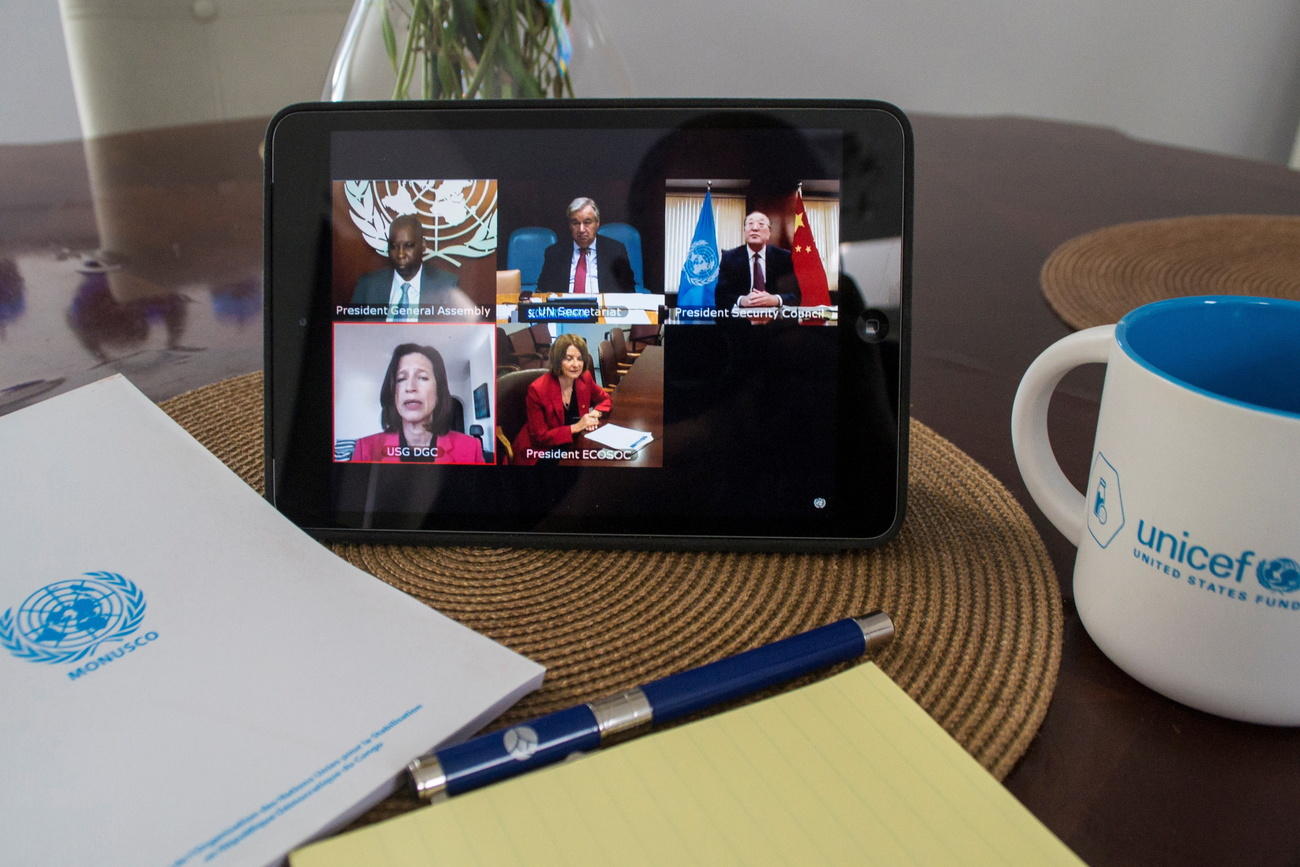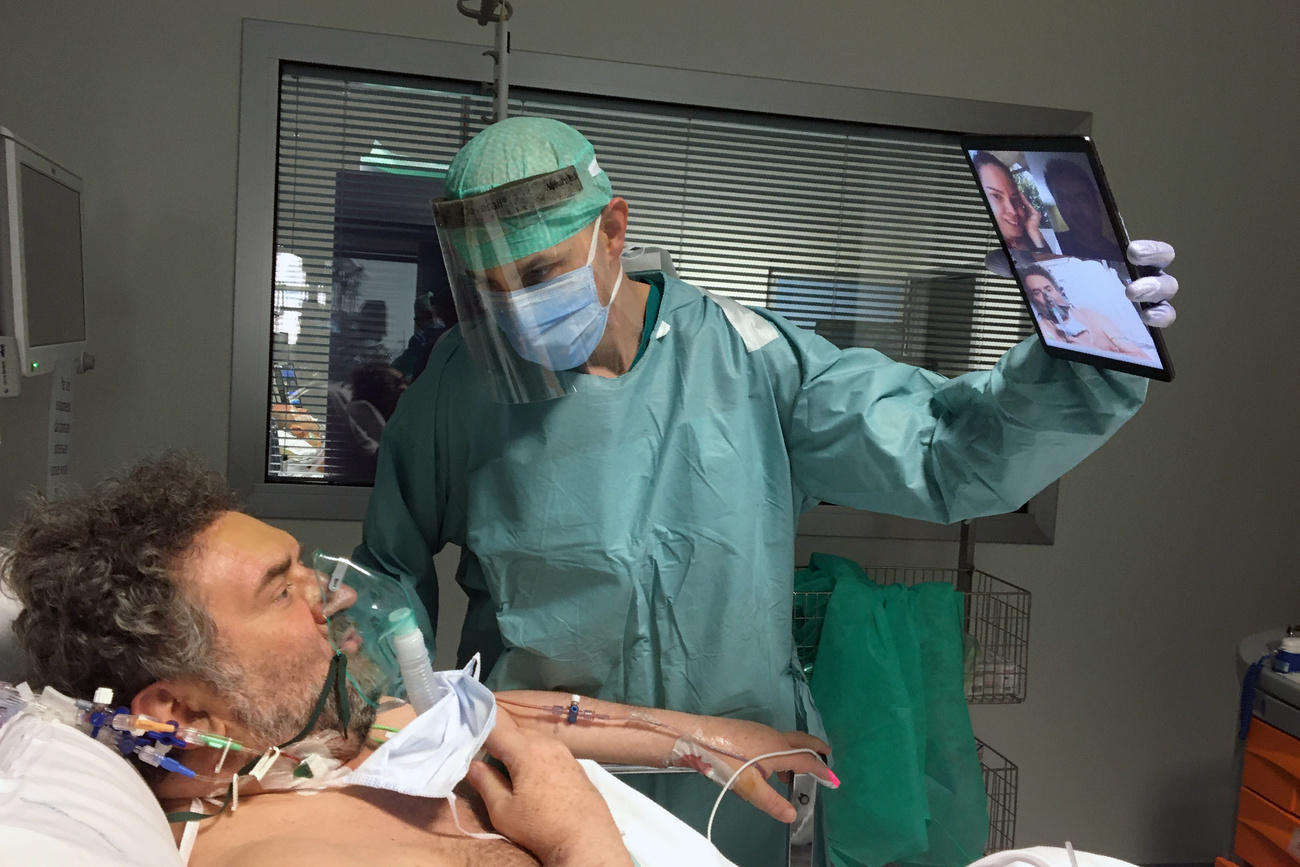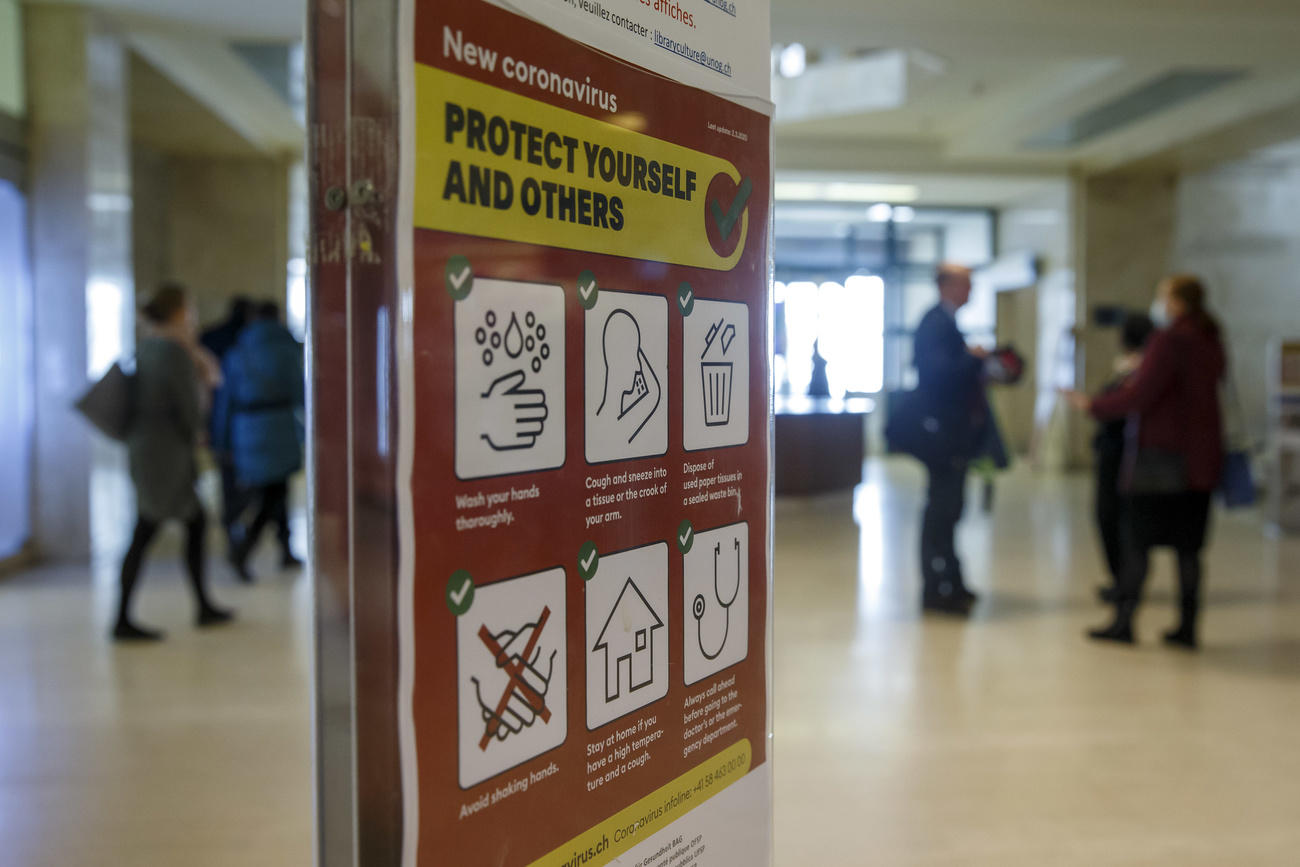Swiss-sponsored UN resolution calls for stronger pandemic cooperation

United Nations member states have approved a Swiss-sponsored resolution calling for “intensified international cooperation” to defeat the coronavirus pandemic.
The resolution was submitted by Switzerland, Indonesia, Singapore, Norway, Liechtenstein and Ghana, and adopted on Thursday by 188 of the 193 states that make up the body; all were participating at distance from their missions or from home owing to the global pandemic and lockdown.
The UN resolutionExternal link entitled “Global solidarity to fight the coronavirus disease 2019 (COVID-19)” stresses the central role of the UN in the global health and economic crisis, “the need for full respect for human rights” and that “there is no place for any form of discrimination, racism and xenophobia in the response to the pandemic”.
In a tweet, Swiss ambassador to the UN in New York Jurg Lauber thanked countries who had backed the initiative for their “overwhelming support”.
Thank you all for the overwhelming support that led to today’s adoption of UN General Assembly Resolution on global solidarity in the response to #COVID19External link – so much more to do! #MultilateralismMattersExternal link pic.twitter.com/YrnO6L19W6External link
— Jurg Lauber (@jurglauber) April 2, 2020External link
Switzerland and the other sponsors had been concerned by the UN Security Council’s inaction over the global crisis and had called for a strong and unified response to the pandemic.
Russia was unsuccessful in opposing the resolution with its own text that was supported by the Central African Republic, Cuba, Nicaragua and Venezuela. The Russian text also discussed cooperation but included an implicit demand for a general lifting of international sanctions.
Unlike the UN Security Council, the resolutions adopted by the General Assembly are not binding but have a strong political value depending on their support.
According to UN Secretary-General Antonio Guterres, the coronavirus is “the most challenging crisis we have faced since the Second World War”. On March 23, he called for an immediate global ceasefire to protect vulnerable civilians in conflict zones from the ravages of the pandemic. However, nations have largely disregarded his appeal.
The Security Council has twice previously addressed public health emergencies, first the HIV/AIDS pandemic and second the swiftly spreading Ebola outbreak in West Africa in 2014, which it called a threat to international peace and security. However, this time the council has been conspicuously silent since the start of the pandemic, as the five permanent members (the US, the United Kingdom, Russia, China and France) are divided on reaching a resolution to support Guterres’ appeal for international action.

More
Coronavirus: the situation in Switzerland

In compliance with the JTI standards
More: SWI swissinfo.ch certified by the Journalism Trust Initiative


You can find an overview of ongoing debates with our journalists here. Please join us!
If you want to start a conversation about a topic raised in this article or want to report factual errors, email us at english@swissinfo.ch.